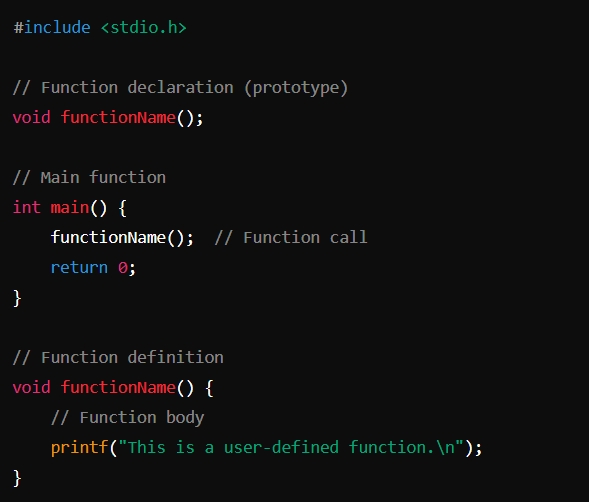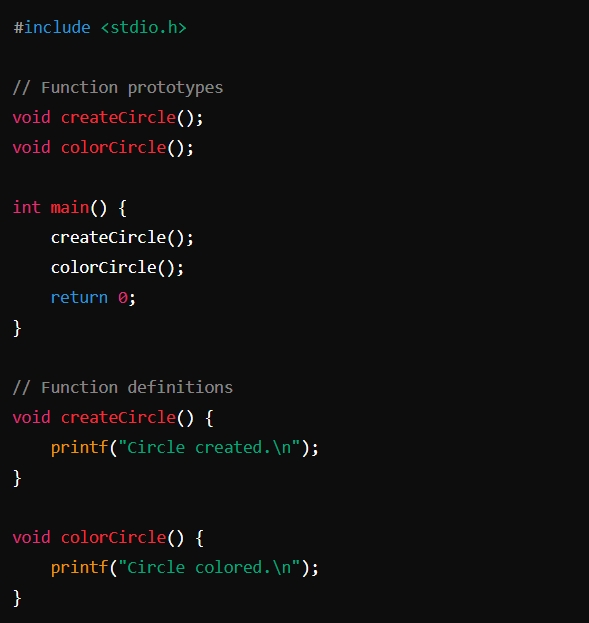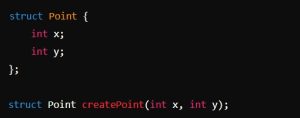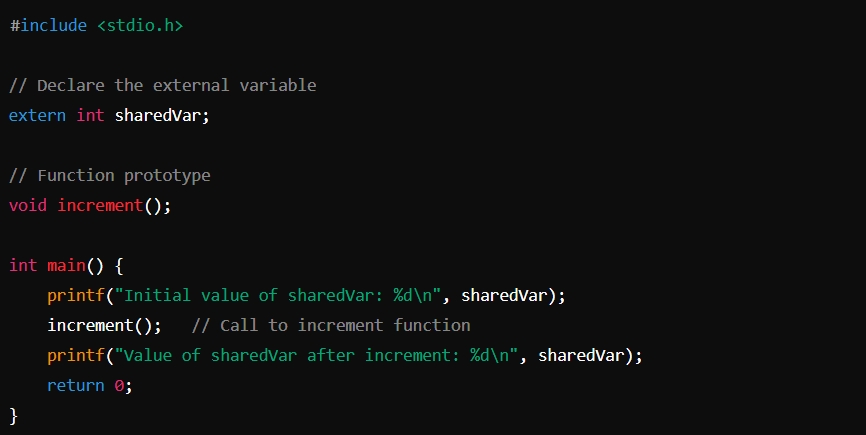Functions in C
A function in C is a block of code that performs a specific task. Functions help to break down complex problems into smaller, more manageable pieces, making programs easier to understand, maintain, and reuse.
Types of Functions in C
Functions in C can be categorized into two main types:
- Standard Library Functions
- User-Defined Functions
Standard Library Functions
These are built-in functions provided by C’s standard library. They are defined in various header files. Some common examples include:
- printf() : Defined in stdio.h, used for formatted output to the screen.
- sqrt() : Defined in math.h, used to calculate the square root of a number.
To use a standard library function, you need to include its corresponding header file in your program.
For example:

Output :

User-Defined Functions
These are functions created by the user to perform specific tasks. The basic syntax for defining a user-defined function is:

How User-Defined Functions Work
- Function Declaration (Prototype): This tells the compiler about the function name, return type, and parameters (if any) before its actual definition. It’s optional if the function is defined before its use.
- Function Definition: This contains the actual body of the function where the task is performed.
- Function Call: This is where the function is invoked in the program, transferring control to the function’s definition.
Example : To demonstrating the use of user-defined functions to create a circle and color it:


Advantages of User-Defined Functions
- Modularity: Breaking down complex problems into smaller functions makes the program more modular.
- Reusability: Functions can be reused in other programs, reducing code redundancy.
- Maintainability: Easier to maintain and debug since each function performs a specific task.
- Collaboration: Large projects can be divided into smaller functions, allowing multiple programmers to work simultaneously.
Functions Returning Non-Integer Values
In C, functions can return various types of values beyond integers, such as floating-point numbers, characters, arrays, pointers, and structures. This flexibility allows functions to handle a wide range of tasks and return more complex data.
Return Types in C Functions
Floating-Point Numbers (float, double)
- Use: When calculations involve real numbers and require precision.
- Example: double calculateArea(double radius);
Characters (char)
- Use: When a single character needs to be returned, such as grades or status indicators.
- Example: char getGrade(int score);
Pointers
- Use: For returning the address of a variable, enabling dynamic memory allocation and complex data structures like linked lists.
- Example: int* findMax(int* array, int size);
Structures
- Use: When returning multiple related values encapsulated in a single entity.
- Example:

External Variables
External variables, also known as global variables, are defined outside of any function and can be accessed by any function within the same file or across multiple files. They are typically declared with the extern keyword to indicate their external linkage when used in other files.
Benefits of External Variables
- Global Access: Available to all functions, making them useful for shared states or configurations.
- State Management: Suitable for maintaining the state that needs to persist across function calls or different parts of a program.
- Modularity: Facilitate splitting code into multiple files while sharing common variables.
Syntax
- Declaration: Use the extern keyword to declare an external variable in a file where it is not defined. extern int sharedVar;
- Definition: Define the external variable in one file without the extern keyword.
int sharedVar = 10;
Example
File 1: main.c

File2: shared.c

To compile these files together, you would use a command like this:

Output:

Summary
Functions Returning Non-Integer Values
- Purpose: Handle and return complex data types such as floating-point numbers, characters, pointers, and structures.
- Benefits: Enable more versatile and functional program components.
External Variables
- Purpose: Share variables across multiple files or functions, maintaining a consistent state throughout the program.
- Benefits: Facilitate modular programming and state management in larger projects.